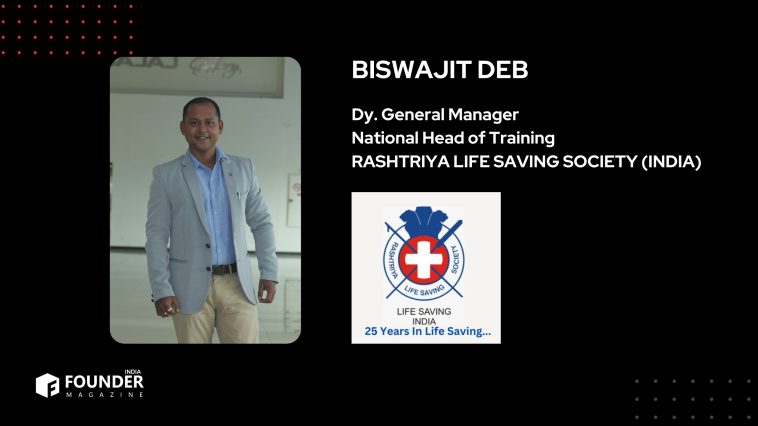Biswajit Deb is a seasoned professional with over 20 years of experience in the field of lifesaving training and emergency preparedness. His impressive background includes accomplishments in long-distance swimming, having completed both 80 km and 200 km swims. His dedication to safety and preparedness is encapsulated in his personal tagline:
“Committed to Respect, Safety, and Preparedness in Emergency for Every Client and Student.”
Extensive Project Portfolio
Biswajit has managed and executed safety training projects for a diverse array of prestigious organizations, including:
- Laureus Sports Foundation International
- Taj Group of Hotels
- MalPani Group
- ITC Hotels
- Frankfinn
- Fly High Institute
- Heritage British Club Royal Bombay Yacht Club Colaba
- SRF Pritampura & Industrial Metal Powders (India)
- Yachting Association of India
- College of Engineering Pune
- Mahindra World College UWC
- Wellington College International Pune
- International Institute of Sports Management Pune
- Underprivileged Program for Yardi Group
- Atma Mallik Foundation
He has also collaborated with various government bodies such as NDRF, SDERF units of Madhya Pradesh, Rajasthan, and Andhra Pradesh, Ayodhya Irrigation Division, Pondicherry Tourism, and Kerala Tourism’s DTPC and Eco Retreat Kodiak Fortes Authority.
The Importance of Safety Training in Corporate Offices
Q: Why is First Aid or Lifesaving training required in the corporate field?
A: The primary need for these trainings is to enhance workplace safety. If employees are knowledgeable in first aid and lifesaving skills, they can provide immediate assistance in emergencies, potentially saving lives and protecting the company’s human resources. Additionally, these skills enable employees to offer aid to people outside the office, benefiting society at large, including their own family and friends. Therefore, companies are not just enhancing workplace safety but are also empowering their employees to be better prepared in their personal lives.
Q: Are safety trainings taken seriously in corporate offices?
A: Observations reveal a varying degree of seriousness across different organizational levels. Top management often recognizes the value of these trainings as they directly contribute to preserving human resources and ultimately benefiting the company. Middle managers and supervisors, however, may view these sessions as events that need to be flawlessly executed without disrupting regular work. Lower-level employees might see these trainings as additional tasks imposed on them, often considering them a burden. Despite these general trends, there are exceptions at every level.

Q: What is the current state of safety trainings in corporate offices?
A: The current state of safety trainings in corporate offices has improved compared to the past. Previously seen as an unnecessary burden, these trainings are now recognized as essential upskilling opportunities. However, the perception of these trainings as merely certificate-earning exercises persists. Often, insufficient time is allocated, and participants may be pulled out midway to attend to other work demands, affecting the overall efficacy of the training.
Q: What is the outcome of the present state of safety trainings?
A: Typically, participants complete these programs and receive their certificates but often struggle with the confidence and ability to apply their knowledge effectively in real-life situations.
Q: What can be done to bridge this gap?
A: To improve the effectiveness of safety trainings, several steps can be taken:
- Commit to Training Duration: Organizers should ensure that training time is respected and that participants are not withdrawn prematurely.
- Pre-Training Emphasis: Companies should hold brief pre-training sessions to underscore the importance of the training.
- Consider Trainer Feedback: Trainers’ suggestions should be taken seriously to enhance training effectiveness.
- Proper Assessment: Trainers should focus on enabling participants and assessing their understanding, rather than just conducting a well-organized event.
- Internal Audits: Top management should conduct annual internal audits with subject experts to evaluate the actual learning outcomes and ensure the training investment is worthwhile.
By implementing these measures, organizations can ensure that safety training programs are not only attended but are also impactful, leading to a safer and more prepared workforce.


